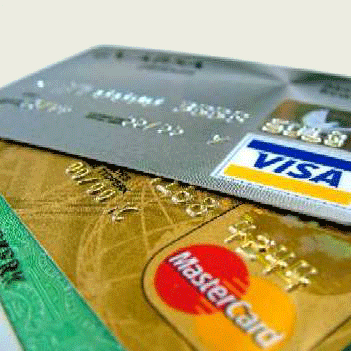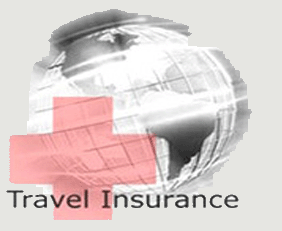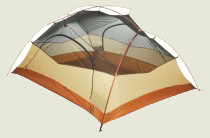It's easier than you
think
Managing your money on the road is
much easier than it used to be.
Today, most countries s
are linked up to an international ATM
network enabling you can get cash using your regular bank cards.
The days of spending the morning
cashing traveler's checks or hunting down an exchange bureau are long
gone.
s
are linked up to an international ATM
network enabling you can get cash using your regular bank cards.
The days of spending the morning
cashing traveler's checks or hunting down an exchange bureau are long
gone.
Before you set off on your bike tour abroad, you will want to check with your bank to see which international networks you will be able to use. You can also check the back of your bank cards to see which international networks such as Cirrus or Plus your card is linked up to. In our experience, A VISA card is slightly more useful than mastercard because some countries are only linked to the Visa network.
Withdrawal fees can add up quickly. Read your account terms carefully to know just how much you'll be forking out every time you get cash from an ATM machine. Fees can be a fixed amount, say $5 per transaction, or they can be a percentage of the total withdrawal. The current trend is for banks issuing cards to offer free overseas withdrawals. But you can still get hit up by the foreign bank running the ATM. Normally these fees (generally between $2-$4) are posted at the ATM machine itself.
cover all your bases
It's always best to
leave home with several
bankcards. We've had our account at one
bank blocked because they noticed unusual spending patterns.
This
could have been a real nightmare, but fortunately we had back up cards.
In addition to your bank cards, it's a good idea to carry a
few hundred dollars (or euros) worth of traveler's checks.
We've been
carrying around the same ones for years and they don't expire but we
feel reassured knowing they're there.
A
supply of cash
is also good to keep on hand in developing countries.
We always carry US
dollars and euros for
changing in out of the
way places. Note that some currencies are almost worthless
outside their borders. Nobody wants your Congolese francs in
the
rest of Africa. Money changers always want to get their hands
on
dollars and euros so you'll be assured of a good exchange rate.
And don't forget that there are still some countries that are
not
yet
hooked up to international ATM networks, for example Sudan and Nigeria.
In other countries, particularly in Central Asia,
international
ATMS are few and far between. Just because you see
lots of
ATMs, doesn't mean those machines will be able to accept your card.
money changers and the black market
Many novice travelers are leery of changing on the street. They tend to steer clear of the money changers lurking around most borders in the developing world. They're worried about getting ripped off or outright robbed. They take to heart the signs expressly prohibiting money changers and warning travelers that changing money is illegal.
We've changed money on the street
from Pakistan to Peru and so
far we've never had any problems. 0once, while changing money
in Zambia under a big sign that read 'The changing of currency is
Illegal',
an immigration officer merely asked us to hurry up as it looked bad to
be flaunting the law. It's always best to be discrete.
In
our experience, money changers are more or less honest.
It's unlikely that someone will try to outright rob you, but
keep
a sharp eye out when the counting is taking place. Crowds tend to
gather during exchange rate negotiations. This can throw you off guard,
so insist on
doing business with one man only. It's also a good idea to
invest
in a small pocket calculator to double check the money changer's
calculations, this people are known to lop off zeros and these kind of
'mistakes' are never in your favor.
Getting a good exchange rate is tough.
Check the internet before you cross the border to know what
the
going rate is. Then you'll have to bargain hard because these
guys are pros. You may also want to try exchanging money
directly with people traveling in
the opposite direction. This creates a win-win situation,
cutting out
the middleman.
internet banking
With
the advent of internet banking, keeping track of your money
couldn't be easier. Be sure to set up internet banking well
before you plan to set off on your bike tour. You will need
to
get pin codes and access codes for transfers and this may take time.
Familiarize yourself with the internet banking before you leave so you
won't waste time in an internet cafe trying to figure out how thing
work.
These days you can do everything on-line: make transfers between accounts, pay bills, check investments.
With a little planning and practice, managing your money while you're out bike touring is as easy as fixing a flat tire. The keys to no hassle finances are having alternate money sources, staying alert while changing money and becoming a pro at on-line banking.
If you enjoyed this post, please share it with others via Twitter.
How
do you manage money on the road? What are your experiences
with
money changers? Any tips for taking care of finances while
you're
away? Please
share in the comments section below.

| Get World Biking Newsletter |
| Email: |
| |
If you enjoyed this post, you'll like these posts, too:
|
|
tips on finding a safe place to sleep (for free!) |
 |
check out more photos from our trip
contact us at: worldbiking@gmail.com





